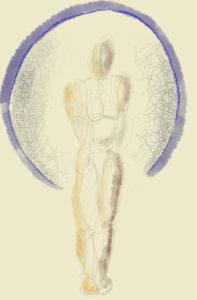 There is, necessarily, an empty center to secular existence. Empty in the sense that there is no absolute answer to the complexities of human life, alone or as part of the great societies that we have created. This opens us to wild, adventurous circuits through pain, meaning, suffering, growth, and love. Religious writers in recent years have had a tendentious tendency to denigrate this fantastic adventure, as Andrew Sullivan does in New York magazine. The worst possible argument is that everything is religion insofar as we believe passionately about its value. It’s wrong if for no other reason than the position of John Gray that Sullivan quotes:
There is, necessarily, an empty center to secular existence. Empty in the sense that there is no absolute answer to the complexities of human life, alone or as part of the great societies that we have created. This opens us to wild, adventurous circuits through pain, meaning, suffering, growth, and love. Religious writers in recent years have had a tendentious tendency to denigrate this fantastic adventure, as Andrew Sullivan does in New York magazine. The worst possible argument is that everything is religion insofar as we believe passionately about its value. It’s wrong if for no other reason than the position of John Gray that Sullivan quotes:
Religion is an attempt to find meaning in events, not a theory that tries to explain the universe.
Many religious people absolutely disagree with that characterization and demand an entire metaphysical cosmos of spiritual entities and corresponding goals. Abstracting religion to a symbolic labeling system for prediction and explanation robs religion, as well as reason, art, emotion, conversation, and logic, of any independent meaning at all. So Sullivan and Gray are so catholic in their semantics that the words can be replanted to justify almost anything. Moreover, the subsequent claim about religion existing because of our awareness of our own mortality is not borne out by the range of concepts that are properly considered religious.
In social change Sullivan sees a grasping towards redemption, whether in the Marxist-idolatrous left or the covertly idolatrous right, but a more careful reading of history proves Sullivan wrong on the surface, at least, if not in the deeper prescription. For instance, it is not faith in progress that has been part of the liberal social experiment since the Enlightenment, but a grasping towards actual reasons and justifications for what is desired and how to achieve it.… Read the rest
